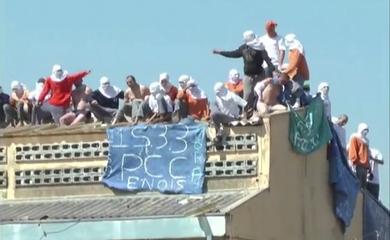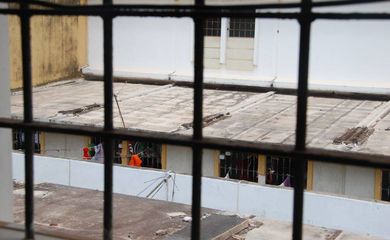UN Human Rights Council debates Brazil prison system


Figures released in 2013 by the Ministry of Justice show that Brazil’s prison population is made up by 574,027 people

Overpopulated cells, little access to the Justice system, the indiscriminate use of provisional premises, precarious infrastructure, and other problems faced by penitentiaries in Brazil will be debated today (Sep 10) by the United Nations Human Rights Council. The meeting brings together representatives from 47 countries in Geneva.
During the gathering, the UN Working Group on arbitrary detention is expected to present a report which was drafted by experts after their visit to seven detention facilities in the country, in the cities of Brasília, Campo Grande, Fortaleza, Rio de Janeiro and São Paulo, in May 2013. The text condemns the deprivation of liberty, regarded as excessive, and maintains that it is “being used as a first resort rather than the last, as stipulated by international human rights standards.” According to the UN, this a “worrying trend”.
The report further highlights the number of arbitrary arrests, the lack of separation between convicts and temporary detainees, and abuse from prison wardens and police officers. As for this kind of violence, the study denounces the prejudice suffered by minorities in jail, especially young black inmates.
The document puts forward a series of recommendations aimed at enforcing the exercise of human rights in the lives of people deprived of liberty. Among the suggestions are a greater access to the Justice system, with expanded services provided by public prosecutors, and alternative penalties on people charged with crimes of less offensive potential, as determined by law. The council also advises the country to attempt to reform its police bodies at both national and state levels, making wider use of strategies like the community police.
After the presentation of the report at the 27th Session of the UN Human Rights Council, the delegation sent by the Brazilian government to Geneva will be given a chance to voice their opinion on the matter. NGO Conectas Human Rights, which holds consultative status with the UN, will also have a say on the study.
Conectas lawyer Vivian Calderoni points out that the debate is expected to bring to light solutions to the challenges faced by the Brazilian prison system, especially as regards the adoption of deprivation of liberty. “The UN very strongly condemns this option and recommends that the country adopt measures like the alternative penalties,” she adds.
Figures released in 2013 by the Ministry of Justice show that Brazil’s prison population is made up by 574,027 people. In the view of Vivan Calderoni, these numbers make clear how limited Brazil’s penitentiary network is, and reveal that “the logic of mass imprisonment must be disrupted.”
Prison facilities in Greece, Hungary and Morroco were also the subject of studies and will be brought under debate as well.
Translated by Fabrício Ferreira
Fonte: UN Human Rights Council debates Brazil prison system



